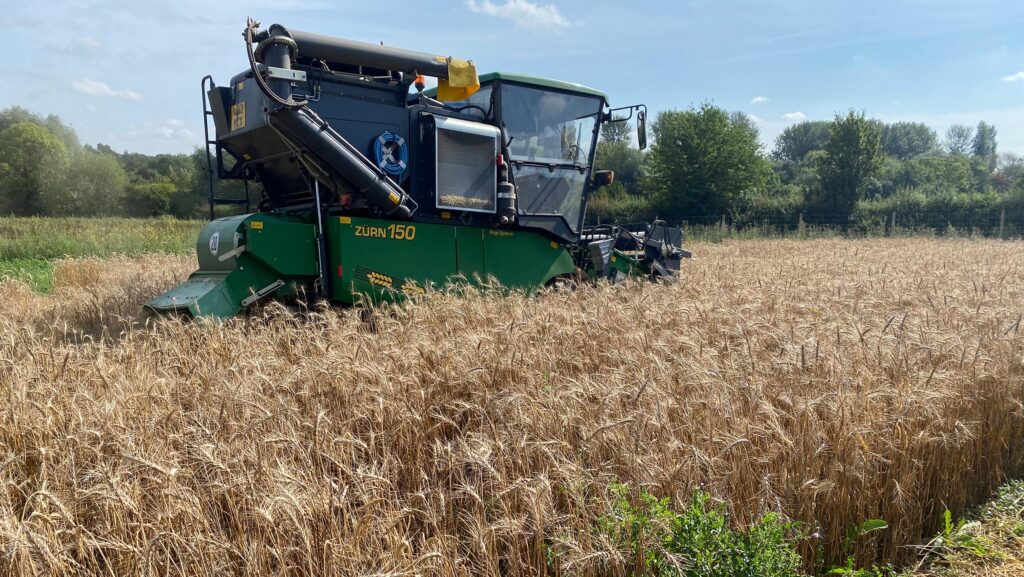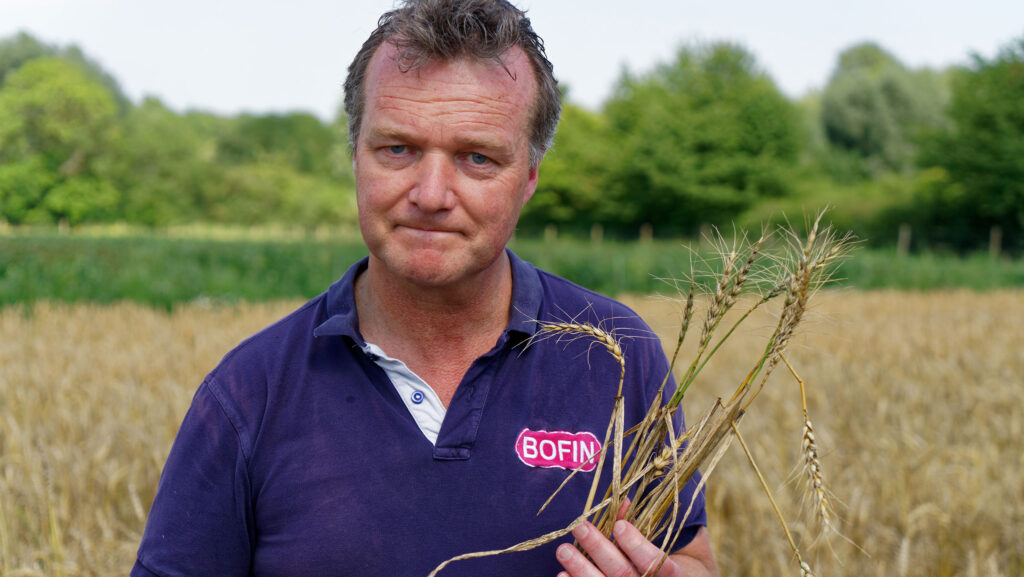First gene-edited wheat harvested from trials
 John Innes Centre trial plot harvest © Bofin
John Innes Centre trial plot harvest © Bofin Gene-edited wheat and barley varieties are expected to be grown on commercial farms in England as early as 2026.
This comes after trial plots of one wheat variety were successfully harvested at the John Innes Centre near Norwich.
And two further cereal varieties being grown in glasshouses at Rothamsted Research are due to be harvested this autumn.
See also: Gene editing – the pros and cons for farming
Seed from all three will be multiplied up during 2025 and grown on commercial farms alongside control plots in further trials in 2026 to establish their potential.
England is the only country in Europe that allows gene-edited material to be grown in farmers’ fields.
Gene editing allows changes to be made to plant DNA to speed up the process of breeding more productive, nutritional and sustainable crop varieties.
Three GE varieties
The three cereal varieties in the project are a wheat bred for superior baking, toasting and processing properties, another with bigger grain, and a barley aimed at lowering livestock methane emissions.
The project involves farmers, scientists and food manufacturers working together under the umbrella of A Platform to Rate Organisms Bred for Improved Traits and Yield (Probity), and is being led by the British On-Farm Innovation Network (Bofin).
Defra’s Farming Innovation Programme is funding the £2.2m cost of the project over three years.
Bofin’s founder, Tom Allen-Stevens, who farms in Oxfordshire, described the project as “incredibly important” for farming and food production.

Tom Allen-Stevens © Bofin
“We need to produce more nutritious food with fewer resources and with less impact on the environment,” he said.
The project allows varieties to be transferred from the laboratory to the farm where their potential can be fully assessed, he added.
New platform
Probity is setting up a new farmer-led platform to multiply up precision bred organisms in farmers’ fields, to provide enough material for batch processing.
The aim is to scale up 1kg of seed to a 100t batch for wider planting.
Farmers can get involved with the project by joining the Sequence Circle at the Probity website.
